Fear No Slop
The term “slop” got to market faster than the Sora slop app. That makes me hopeful.
This week I’ve received a lot of “what do you think about this” texts from friends, family and investors because of my work in the screen time space. I have a default bias towards optimism, which others have told me is helpful in their own reckoning with the arrival of these new technologies so I’m sharing a perspective:
AI is accelerating but culture runs faster.
Let’s context set with a quick rundown of a busy week in AI releases:
Sora 2 & Vibes Drop This Week
AI short form video apps, Sora 2 by Open AI and Vibes by Meta, dropped this week. Queue the “end of civilization” and “culture is dead” memes.
Anthropic Responds with “Keep Thinking” Campaign
Meanwhile Anthropic responded with a pop up in the west village and the launch of their “Keep Thinking” campaign. “Thinking” caps, Machines of Loving Grace pamphlets, the aesthetics were on point. The humanists erupted in applause.
They also have a really really good launch video for this campaign that is worth watching.
Remember When Sam A Was Uncontrollably Proud of Open AI’s Aesthetics?
The AI companies have been anchoring in a humanist aesthetic because they know how valuable it is.
Remember the AI hardware companion “friend” launch video? Can’t you feel the warm, hyper-realness working to endear the product to you?
AI’s capabilities aren’t sufficient for a company or product in the space to win, because human culture has an immune system against the things that take more than they give to us.
The “Friend” device did a NYC Subway campaign this week that elicited a lot of negative responses and serves as another great example of what it looks like for the cultural immune system to respond to the wrong type of AI intrusion:
There is an entire website of these:
https://nyc-friends.vercel.app/
Didn’t the cultural immune system fail to reject Social Media?
Yes, but also no.
Learning from social media failures is helping us respond to the AI moment we are living in right now.
The negative impacts of social media (mental health, loneliness, political polarization) would have been really hard to imagine when it was getting started (though some did). The impacts of AI are much more in your face (it could immediately write papers for students and emails for professionals to name one of the many immediately massive transformations in daily life that it ushered in).
The pace of adoption of social media was actually a lot more gradual than AI, which allowed it to inoculate itself while also deceptively evolving.
Social media and the attention economy co-evolved into an increasingly destructive force over about a decade. There was a critical threshold broken when a majority of people got smartphones in the late 2010s and then another one crossed in 2020 when short form content blew the door open and triggered the immune response of the cultural consciousness that has produced the anxious generation, school legislation, and detox culture.
Why Fear No Slop
Why Fear No Slop? Here’s why:
Culture is moving in lock step with AI. The information network of humans that helps us refine the ways that we understand things together is busy at work. The hive mind of humanity that likes to laugh and wills itself to survive is clocking how AI is moving, and it’s sensitive to when it’s encroaching. Which is why the term “slop” got to market faster than the Sora slop feed.
This cultural counter punch can’t be relied upon as our only defense, but it is a reminder of human resilience in the face of a changing environment. I think we need this assurance to take the most impactful steps to shaping the technologies productively, which is to engage with them. The awareness level of the cultural consciousness makes me hopeful that we can dance with, rather than diametrically oppose, these new technologies.
We should proceed thoughtfully but have confidence to engage the intelligence moment.
Onward and upward,
RB


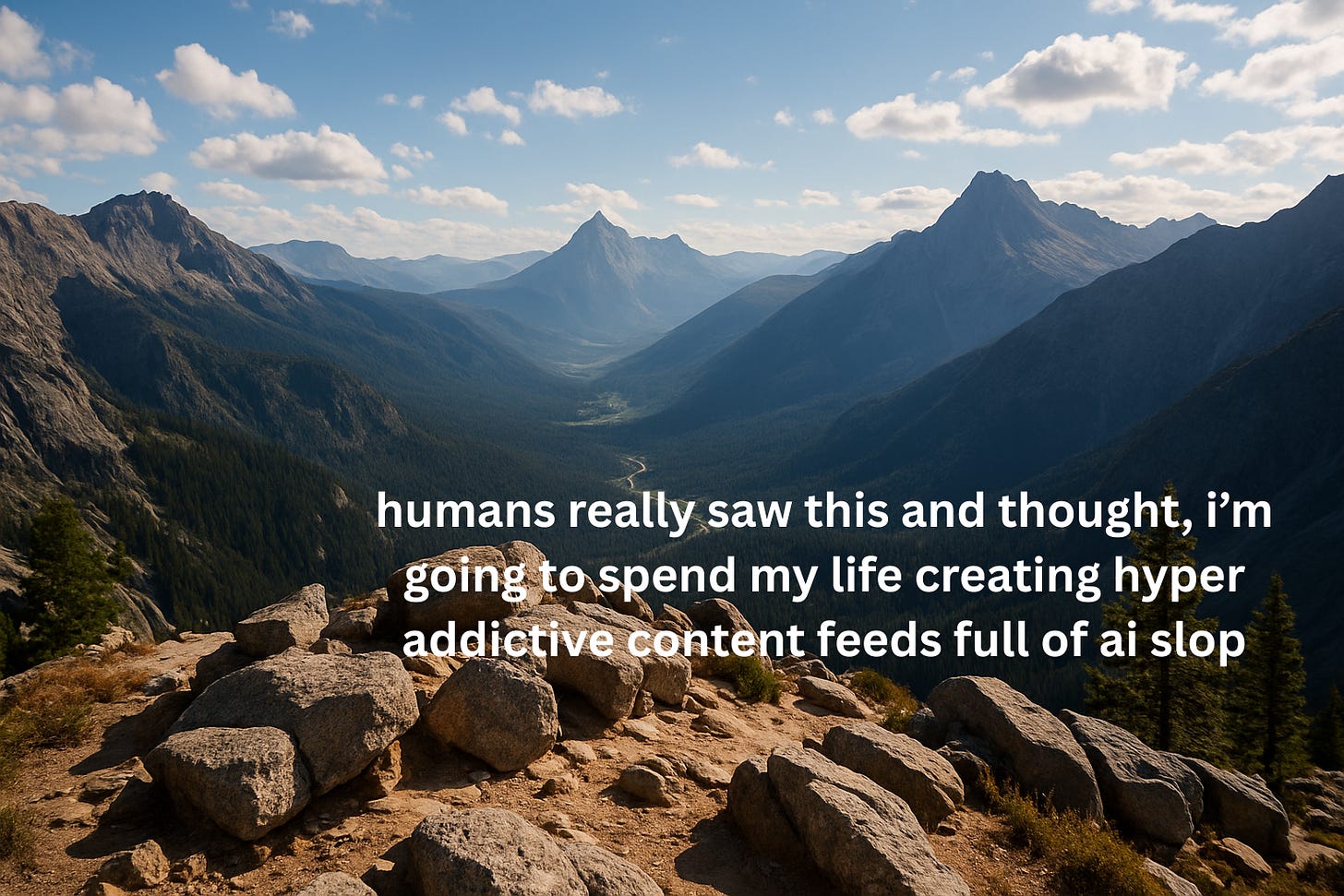
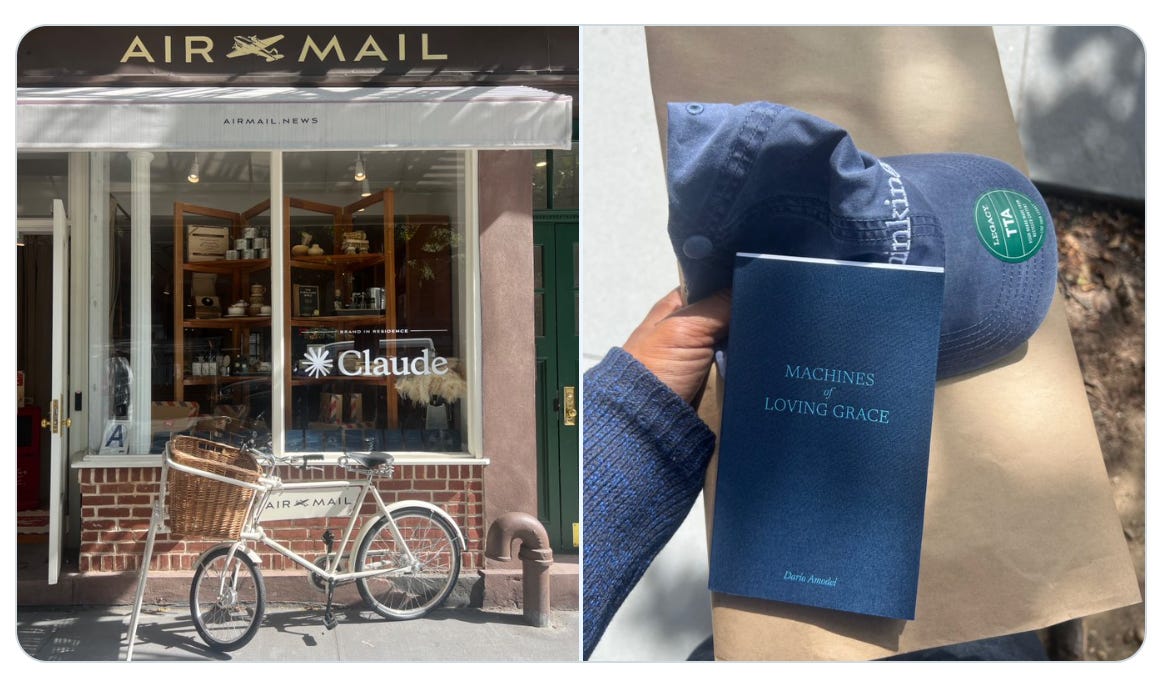
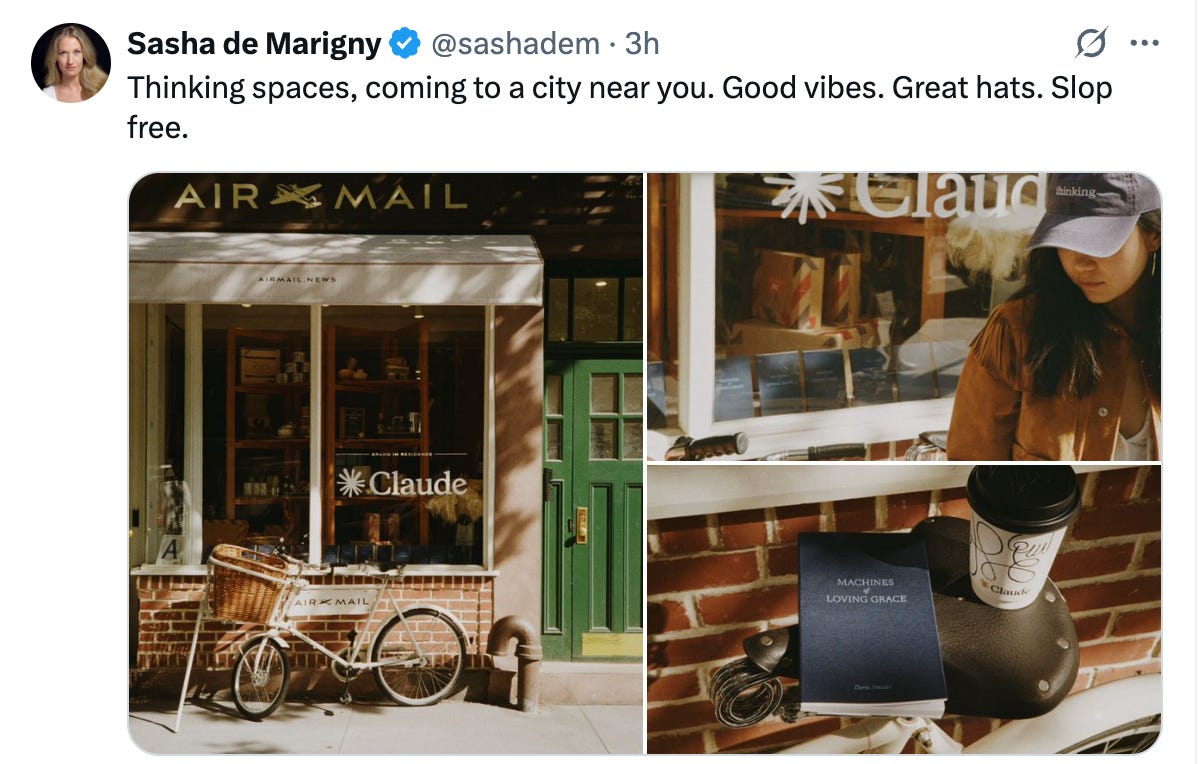
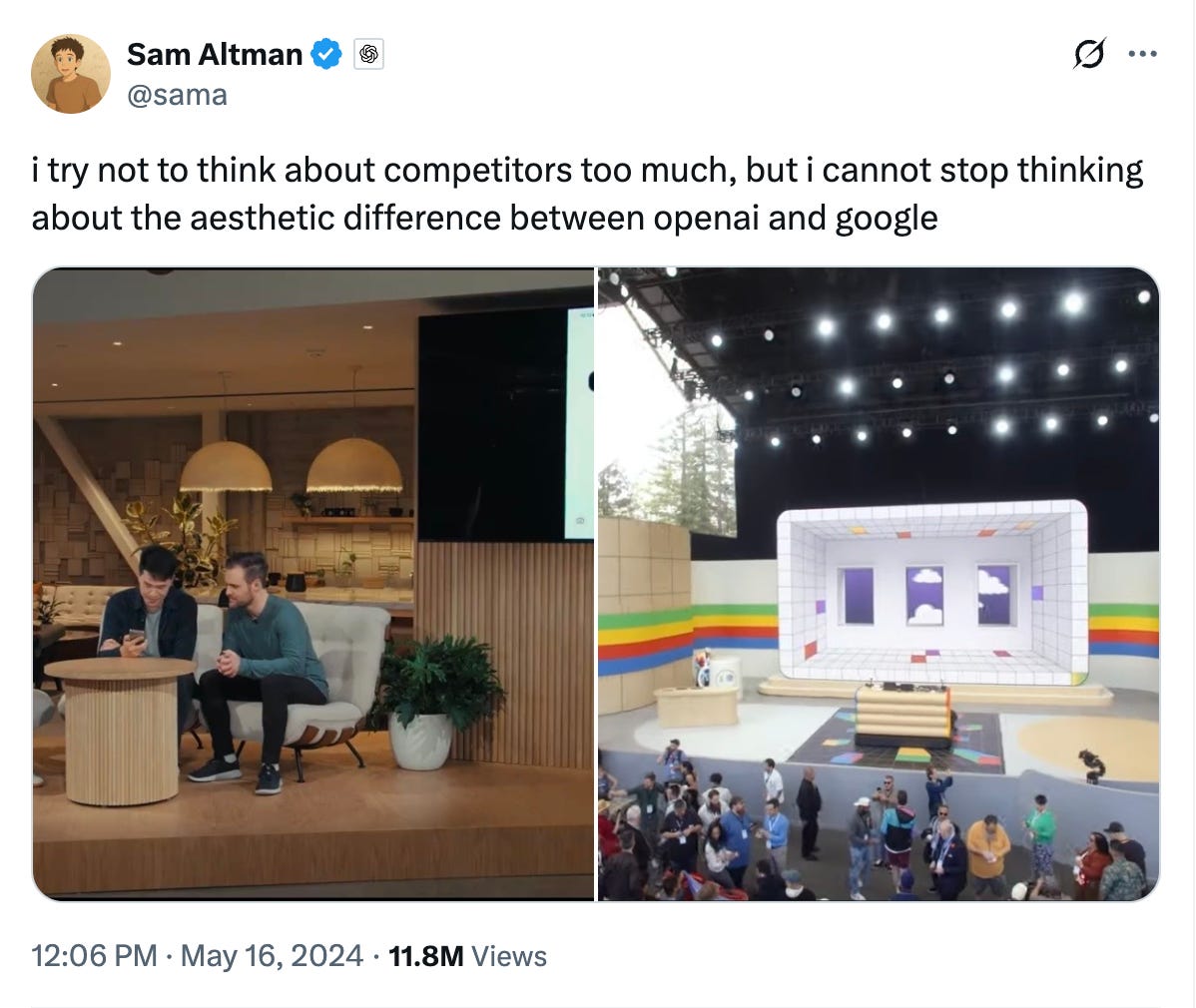
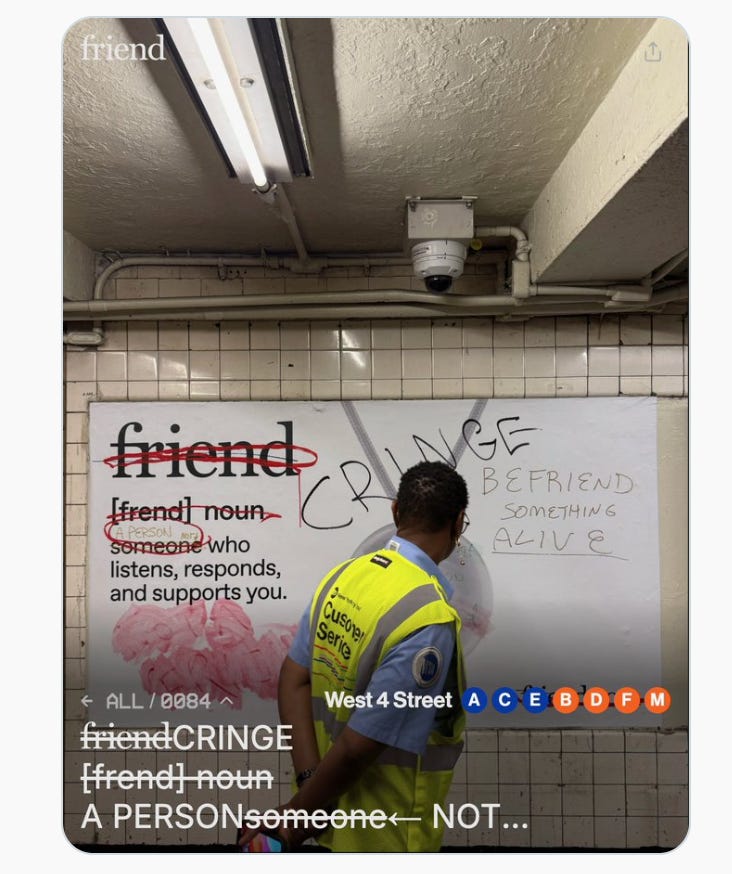
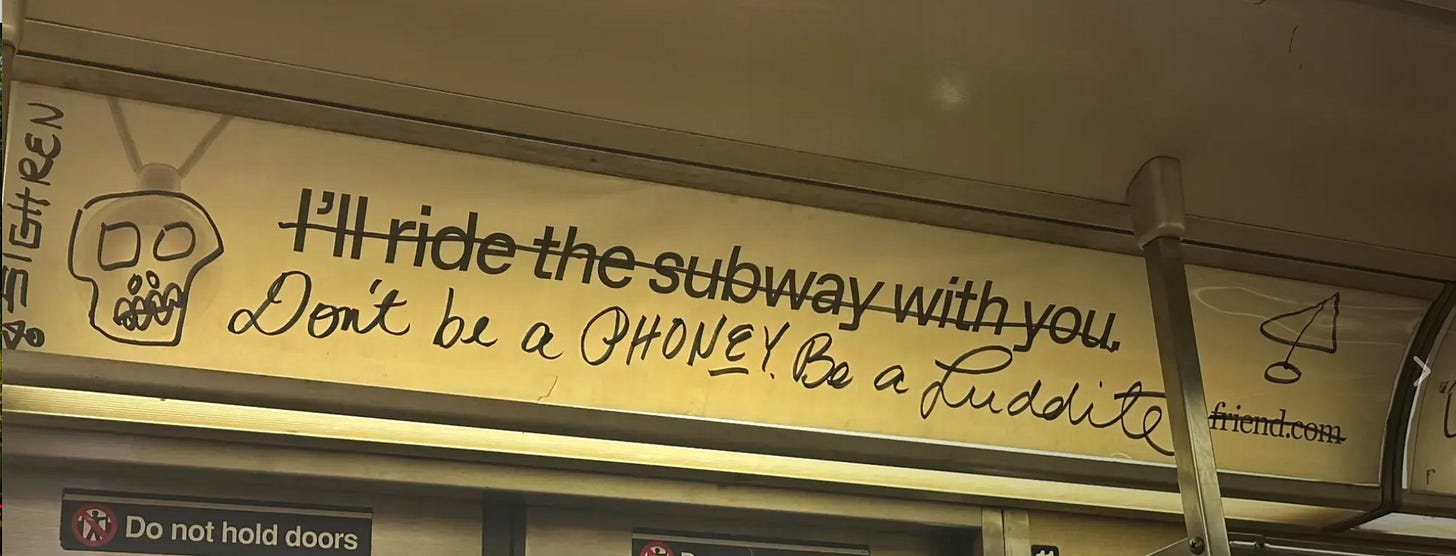
great read!